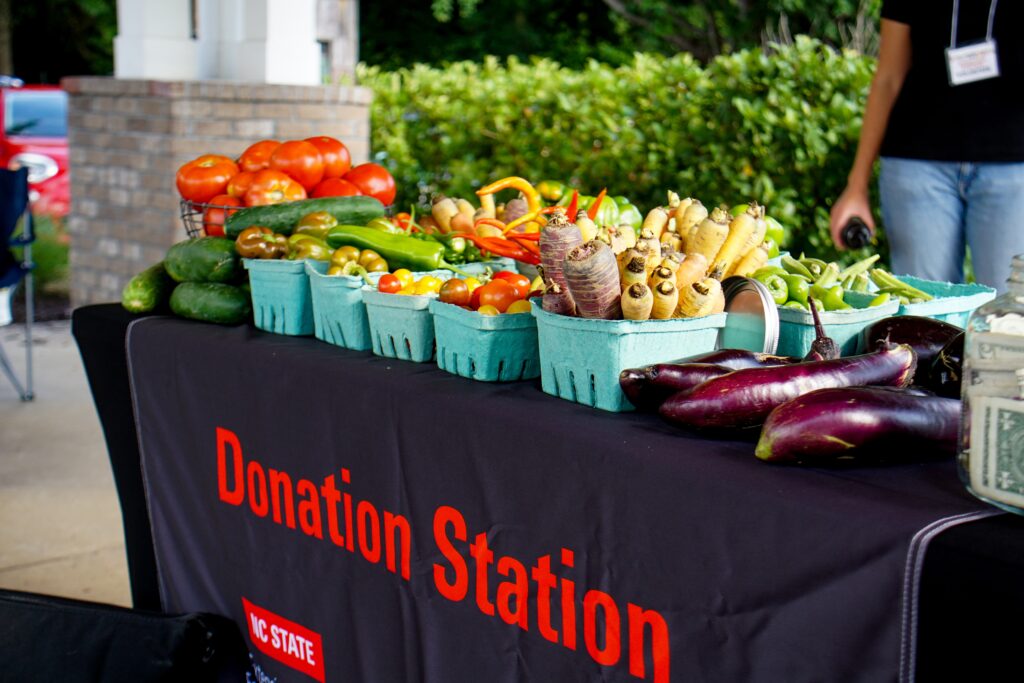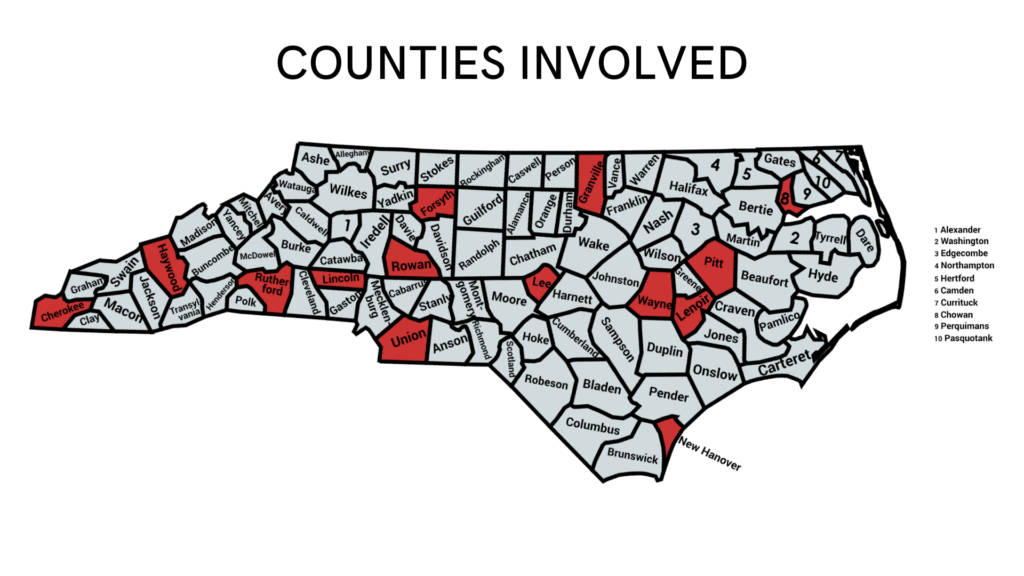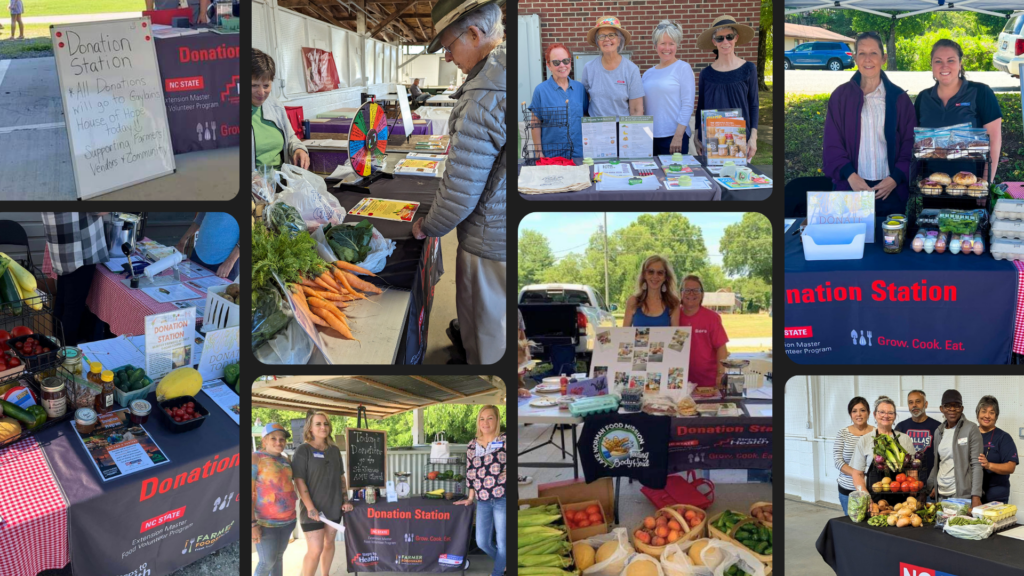Donation Stations
go.ncsu.edu/readext?836607
en Español / em Português
El inglés es el idioma de control de esta página. En la medida en que haya algún conflicto entre la traducción al inglés y la traducción, el inglés prevalece.
Al hacer clic en el enlace de traducción se activa un servicio de traducción gratuito para convertir la página al español. Al igual que con cualquier traducción por Internet, la conversión no es sensible al contexto y puede que no traduzca el texto en su significado original. NC State Extension no garantiza la exactitud del texto traducido. Por favor, tenga en cuenta que algunas aplicaciones y/o servicios pueden no funcionar como se espera cuando se traducen.
Português
Inglês é o idioma de controle desta página. Na medida que haja algum conflito entre o texto original em Inglês e a tradução, o Inglês prevalece.
Ao clicar no link de tradução, um serviço gratuito de tradução será ativado para converter a página para o Português. Como em qualquer tradução pela internet, a conversão não é sensivel ao contexto e pode não ocorrer a tradução para o significado orginal. O serviço de Extensão da Carolina do Norte (NC State Extension) não garante a exatidão do texto traduzido. Por favor, observe que algumas funções ou serviços podem não funcionar como esperado após a tradução.
English
English is the controlling language of this page. To the extent there is any conflict between the English text and the translation, English controls.
Clicking on the translation link activates a free translation service to convert the page to Spanish. As with any Internet translation, the conversion is not context-sensitive and may not translate the text to its original meaning. NC State Extension does not guarantee the accuracy of the translated text. Please note that some applications and/or services may not function as expected when translated.
Collapse ▲Donation Stations seek to improve access to fresh, locally-grown food while supporting the farmers who grow it. They are designed to combat local food insecurity while raising awareness that a healthy local food system must include every member of the community.
 Donation Stations use a simple farmers market-based approach where volunteers
Donation Stations use a simple farmers market-based approach where volunteers
collect food and monetary donations from farmers market shoppers, buy directly
from farmers at the farmers market, and donate the resulting food to a local hunger
relief agency. Family & Consumer Sciences Agents and their EMFVs are working to run these Donation Stations at farmers markets across North Carolina.
In 2024, fourteen counties had active Donation Stations: Cherokee, Chowan, Forsyth, Granville, Haywood, Lee, Lenoir, Lincoln, New Hanover, Pitt, Rowan, Rutherford, Union, and Wayne. Staff and volunteers hosted Donation Stations on 99 market days, collecting $6,193 in monetary donations. Combined with the pounds of produce donated from customers, a total estimated value of $14,226 ($1.88/lb) was spent in total with local farmers. 9,000 pounds of produce were donated to local food relief agencies, including pounds of produce donated by customers and pounds of produce purchased with monetary donations from customers. Volunteers gave over 597 hours of their time, estimated at a value of $17,880.15.
View the 2024 Statewide Year-in-Review here.
This incredibly successful effort has allowed fresh food to flow locally and has fostered strong community engagement. Funding for the program has come from the EMFV Program, the Local Food Program Team, and Steps to Health. What can be donated?
What can be donated?
The N.C. Cooperative Extension staff member implementing the Donation Station will have a conversation with the food pantry recipient and the farmers market manager leading up to the Donation Station. This will help them gain an understanding of the clients’ needs which can in turn help them when selecting foods at the market. Here is a list of potential donations:
- Produce
- Eggs, if the pantry has a need and adequate storage is available
- Bread, if the pantry has a need
- Plants that produce food
- Typically meat and poultry are not items for donation as they are more costly. In addition, a Donation Station usually doesn’t have adequate refrigeration to hold meat and poultry.

Why should you support it?
- All donations stay local to the market and your community
- Donation Stations are completely volunteer run, meaning there are no overhead fees for this program
- Farmers and farmers markets gain positive public awareness through community and media outreach
- It’s a win for everyone – farmers get what their produce is worth, community members most at need get fresh, local produce that they might not otherwise be able to access
“Volunteers are vital to the success of [these programs]. Not only are they essential for operating the Donation Station tables, but they play a critical role in communicating the need for access to fresh, healthy food to combat food insecurity and hunger. Volunteers also act as ambassadors – connecting people with their local food systems and farmers.”
-Amy Mead, N.C. Cooperative Extension
What is the role* of the partners involved in a Donation Station?
- The State Team is responsible for providing comprehensive training and orientation for volunteers, providing essential materials and resources for operation, and assisting with data collection and analysis.
- Farmers Markets are responsible for providing a space at the market for the Donation Station, advertising and promoting the Donation Station, and providing a space for storing materials, if possible.
- Food Pantries are responsible for picking up (or receiving) donations at the end of the farmers market, designating a lead contact person within the food pantry, and providing cold storage for donations, if needed.
- The Extension Agent is responsible for establishing and facilitating
partnerships among parties involved (farmers, farmers market, food pantry, volunteers), selecting a farmers market and food pantry recipient, gathering
equipment needed, and promoting the Donation Station. - Volunteers are responsible for volunteering on market days, including setting-up & breaking down the Donation Station, engaging with customers for donations, purchasing food and getting donations from farmers, and helping report donations.
*Some roles may vary county to county.
Available Resources:
If you have questions regarding Donation Stations, please contact EMFV Program Manager, Morgan Marshall, at morgan_marshall@ncsu.edu.


